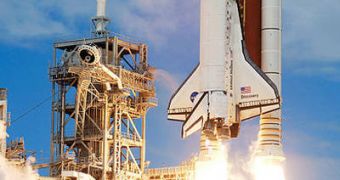With more than $1.7 trillion in deficits in 2009, the United States are now hardly in a position to retain their hard-earned place as leader in space flight. Some 40 years ago, when the Apollo 11 mission took off for the Moon, there was no doubt in anyone's mind that NASA, with its income then estimated at four percent of the federal budget, was the leading force in the world, space-wise. However, things have changed, and that may no longer be the case, analysts say.
New and powerful actors appeared on the “space market,” including the European Space Agency (ESA), the Japanese one (JAXA) and, of course, the Russian RosCosmos. While some of these players are important because they have their own manned vehicles and launch capabilities, others lead the way in innovation, and the incorporation of advanced technologies in unmanned or robotic spaceflight.
NASA is directly competing with these agencies, despite the fact that, at times, they work together, such as for the International Space Station. With a bill of $100 billion, no nation on Earth would have afforded to support the football field-sized station on its own.
In addition to these challenges, NASA is currently facing graver issues on the inside. Its funding has been severely reduced, despite the fact that President Barack Obama has voiced his support for space exploration during his campaign, both manned and unmanned, and for sending people back to the Moon. “This is a president who gets it. He understands the importance of human space flight. He was clear in his campaign, and since, about his commitment to go back to the Moon and other destinations beyond low-Earth orbit,” Obama's Science Advisor, John Holdren, told scientists a while back.
However, despite all good will, this is a matter of hard, cold cash. Many believe that a nearly collapsed America simply does not have the financial strength required to send people back to the Moon by 2020, and to Mars a decade later. With the shuttles scheduled to be retired next year, the country will be left without human flight abilities for at least five years, until Project Constellation is completed. However, the new replacement program is already over budget, and Obama has ordered a thorough review of NASA spending on the ARES rocket family, the Orion capsule and the Altair lunar lander.
Another serious problem facing space exploration in the US is the ever-diminishing popular support for spending large amounts of money on missions to the Moon, Mars or the ISS. Rocket launches have become common sight, with several going on every year, so there is nothing drawing the masses to support the efforts. The data that is obtained from satellites, which is invaluable to science, does not incite any kind of response in Average Joe, who simply no longer cares about the shuttles or the Atlas V rockets.

 14 DAY TRIAL //
14 DAY TRIAL //